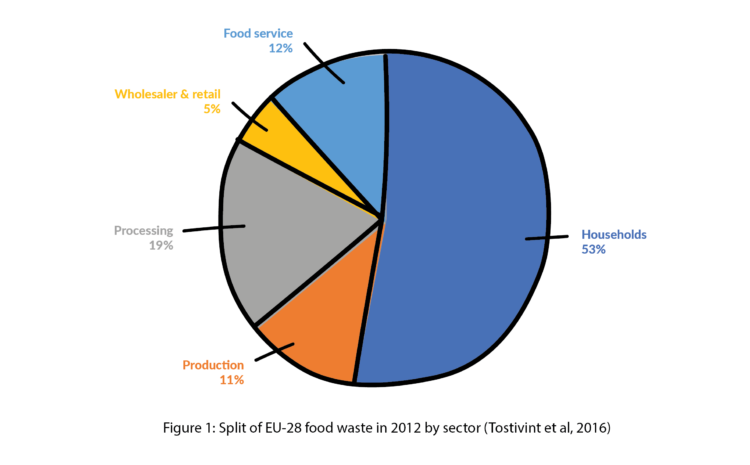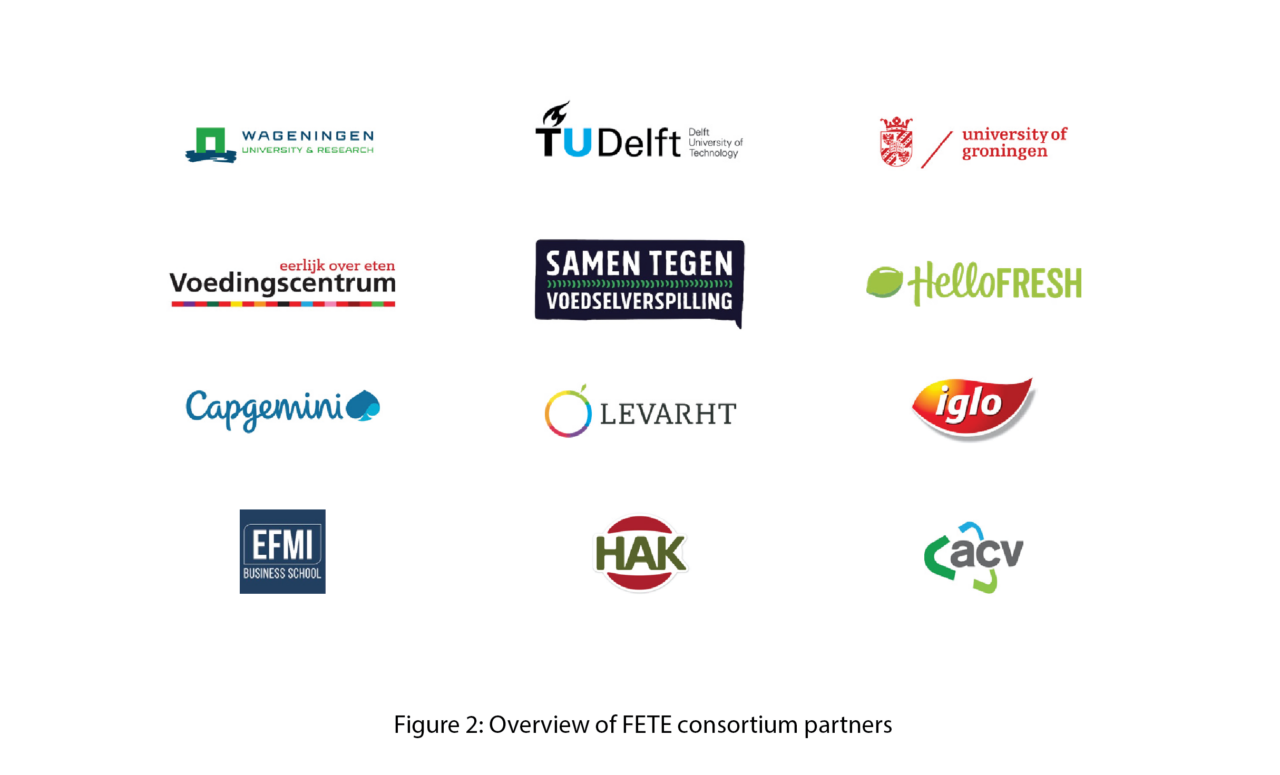Reducing food waste by systemic design
Sep 2020 - ongoing
Background
Our food system is under transition. Today, we see millions of people worldwide suffering from malnutrition and hunger, while at the same time, one-third of all food produced for human consumption is lost or wasted every year (FAO,2013). All this food loss and waste presents social, economic, and environmental issues which affect both individuals and societies wellbeing (FAO,2013; Salhofer, Obersteiner, Schneider, & Lebersorger, 2008). When food is wasted at the end of the supply chain, all the energy expended during the previous stages, such as agriculture, transportation, processing, storage, food sales, and preparation, is also wasted
In the Netherlands, food wasted in the supply chain averages between 1.77 and 2.55 billion kilos a year, with consumers representing the most significant portion—33% of the total food waste (van Dooren & Mensink, 2018). With the expected growth in the global population to increase by 70-100% by the year 2050, there is extra pressure on the food system to meet a rising food demand while mitigating the negative consequences of food production and consumption (Godfray et al., 2010; van Geffen, van Herpen, Sijtsema, & van Trijp, 2020). In order to meet this demand and reach the European Union ambition of halving food waste by 2030, a multifaceted approach addressing consumer-related, retailer-related, and macro-environmental issues is required (Aschemann-Witzel, de Hooge, Amani, Bech-Larsen, & Oostindjer, 2015; Schanes, Dobernig, & Gözet, 2018).

Research focus
My research is part of the Food Waste: From Excess to Enough (FETE) research project. Together FETE investigates how the Dutch food system, which caters to an ‘excess’ amount of food, can be transitioned towards producing and consuming ‘enough’ food. Achieving this transition requires a shift in the mindset of our consumption and production patterns, the implementation of interventions at different levels of the food system, and the collaboration between various stakeholders in our complex food system.

This PhD investigates how a designer’s ability to envision alternative futures, resolve conflicts through integrative thinking, and design for behaviour change can be valuable for fostering system transitions. I investigate these capabilities by taking the transition of the food system to less consumer food waste as my application domain. The outcome of my research will be the design of innovations that accelerate this transition towards less food waste, as well as tools and/or methods to support designers in fostering transitions.
A first outcome of this research is a vision of a new food system. We envisioned a food system, together with Reframing Studios, where consumers, retailers, and producers fulfil different roles to provide our society with enough food. This new system helps us to appreciate food more and encourages less purchasing without compromising on food quality, variety, or convenience. And which embraces flexibility, regulates vitality, recognises the value of food, and optimises through learning.
PhD promoter: Rick Schifferstein
Daily supervisor: Nynke Tromp
References
Aschemann-Witzel, J., de Hooge, I., Amani, P., Bech-Larsen, T., & Oostindjer, M. (2015). Consumer-Related Food Waste: Causes and Potential for Action. Sustainability, 7, 6457-6477. doi:10.3390/su7066457
Food and Agriculture Organization of the United Nations. (2013). Food Wastage Footprint. Impact on Natural Resources. Retrieved from http://www.fao.org/publications/card/en/c/000d4a32-7304-5785-a2f1-f64c6de8e7a2/
Godfray, H. C. J., Beddington, J. R., Crute, I. R., Haddad, L., Lawrence, D., Muir, J. F., . . . Toulmin, C. (2010). Food Security: The Challenge of Feeding 9 Billion People. Science, 327(5967), 812-818. doi:10.1126/science.1185383
Salhofer, S., Obersteiner, G., Schneider, F., & Lebersorger, S. (2008). Potentials for the prevention of municipal solid waste. Waste Management, 28(2), 245-259. doi:https://doi.org/10.1016/j.wasman.2007.02.026
Schanes, K., Dobernig, K., & Gözet, B. (2018). Food waste matters – A systematic review of household food waste practices and their policy implications. Journal of Cleaner Production, 182, 978-991. doi:https://doi.org/10.1016/j.jclepro.2018.02.030
van Dooren, C., & Mensink, F. (2018). Food waste by consumers: fact sheet. Retrieved from https://www.voedingscentrum.nl/nl/pers/factsheets/fact-sheets-in-english.aspx
van Geffen, L., van Herpen, E., Sijtsema, S., & van Trijp, H. (2020). Food waste as the consequence of competing motivations, lack of opportunities, and insufficient abilities. Resources, Conservation & Recycling: X, 5, 100026. doi:https://doi.org/10.1016/j.rcrx.2019.100026